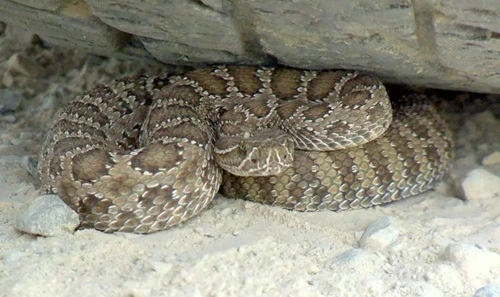Yes, it is illegal to kill rattlesnakes in Washington under most circumstances. The state of Washington provides legal protections for native reptiles, including rattlesnakes, to preserve biodiversity and maintain ecological balance. However, exceptions exist if a snake poses an immediate threat to human safety.
Legal Protections for Rattlesnakes in Washington
In Washington, the Western rattlesnake (Crotalus oreganus) is the only native rattlesnake species. It is protected under the Washington Administrative Code (WAC) as a nongame species, which means it cannot be hunted or killed without a specific reason.
The Washington Department of Fish and Wildlife (WDFW) classifies snakes, including rattlesnakes, as vital components of the ecosystem. Their primary role includes controlling rodent populations and supporting the balance of local food chains. Unnecessary killing or harming of these snakes is discouraged and regulated by law.
Exceptions to the Law
1. Immediate Threat to Human Safety
If a rattlesnake poses a direct and immediate danger to people, such as in close proximity to homes or public areas, killing the snake may be legally permissible. It is important to note that this exception applies strictly to situations where non-lethal removal is not an option.
2. Professional Handling
In cases where rattlesnakes become a recurring problem, property owners are encouraged to contact licensed wildlife removal specialists. These professionals can safely relocate the snakes without violating state laws.
Penalties for Violations
Violating wildlife protection laws in Washington can result in legal penalties, including fines and potential civil action. Killing a rattlesnake without justification could be deemed unlawful under the WAC, leading to financial repercussions and other legal consequences.
Safe and Legal Alternatives
If you encounter a rattlesnake in Washington, the following steps can ensure safety and compliance with the law:
- Maintain Distance: Stay at least several feet away from the snake to avoid provoking it. Rattlesnakes are not aggressive unless threatened.
- Contact Authorities: Call the WDFW or a local wildlife expert to handle the situation professionally.
- Snake-Proofing Property: Install barriers, seal entry points, and maintain a clean yard to deter snakes from frequenting your property.
Conservation Importance of Rattlesnakes
Rattlesnakes are often misunderstood but are critical to Washington’s ecosystems. They regulate rodent populations, which helps prevent the spread of diseases and minimizes agricultural damage. Their presence is a natural form of pest control, reducing the need for chemical interventions.
The WDFW actively educates the public about the importance of snakes and discourages unwarranted fear or hostility toward these reptiles. Conservation efforts aim to protect both humans and wildlife through coexistence.
Related FAQs
Q1. Can I kill a rattlesnake on my property in Washington?
Ans: Yes, but only if the snake poses an immediate threat to your safety. Otherwise, non-lethal methods or professional removal are required.
Q2. Are all snakes in Washington protected by law?
Ans: Most native snakes, including the Western rattlesnake, are protected as nongame species. Killing them without a valid reason is generally prohibited.
Q3. What should I do if I find a rattlesnake near my home?
Ans: Maintain a safe distance and contact a licensed wildlife removal service or the WDFW for assistance.
Q4. Are there penalties for killing a rattlesnake without justification?
Ans: Yes, violators may face fines and other legal consequences under Washington’s wildlife protection laws.
Q5. How can I prevent rattlesnakes from entering my property?
Ans: Maintain your yard by removing debris, sealing gaps in foundations, and installing snake-proof fencing.
Conclusion
In Washington, killing rattlesnakes is generally illegal unless the snake poses an immediate threat to human safety. The state prioritizes the conservation of native species, recognizing their ecological importance. By understanding and adhering to these laws, residents can coexist with rattlesnakes while protecting the state’s biodiversity.

